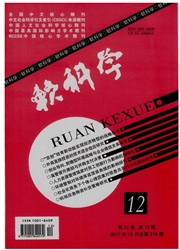

 中文摘要:
中文摘要:
以信贷紧缩作为反映资金供给变化的外生冲击,以有息资产负债率作为资本结构的代表指标,基于部分调整模型,引入双重差分变量,结合2000 ~2011年在中国境内上市的91家房地产公司的数据,研究信贷紧缩对我国房地产上市公司目标资本结构的影响.实证结果表明:信贷紧缩发生时,房地产上市公司目标有息资产负债率将降低;相比大公司、国有公司和抵押担保能力强的公司,小公司、民营公司以及抵押担保能力弱的公司在信贷紧缩期间,其目标有息资产负债率降低幅度更大.
 英文摘要:
英文摘要:
Credit squeeze is utilized as an exogenous shock reflecting the variation of capital supply and interest-bearing debt ratio is proposed as representative indicator for capital structure. With the data from 91 real estate listed companies in China during 2000 ~ 2011, an econometric model based on standard partial adjustment model and difference-in-differences variable is introduced to empirically analyze the impact of credit squeeze on target capital structure for real estate listed companies. The results show that the target interest-bearing debt ratio of real estate listed companies will decrease when credit squeeze occurs; the target interest-bearing debt ratio in small companies, Private-owned Enterprises and the companies with weak mortgage capability decrease more than those in large companies, State-owned Enterprises and the companies with strong mortgage capability.
 同期刊论文项目
同期刊论文项目
 同项目期刊论文
同项目期刊论文
 The effects of buyers’ reserve prices and the number of brokers on searching for housing: An empiric
The effects of buyers’ reserve prices and the number of brokers on searching for housing: An empiric 期刊信息
期刊信息
